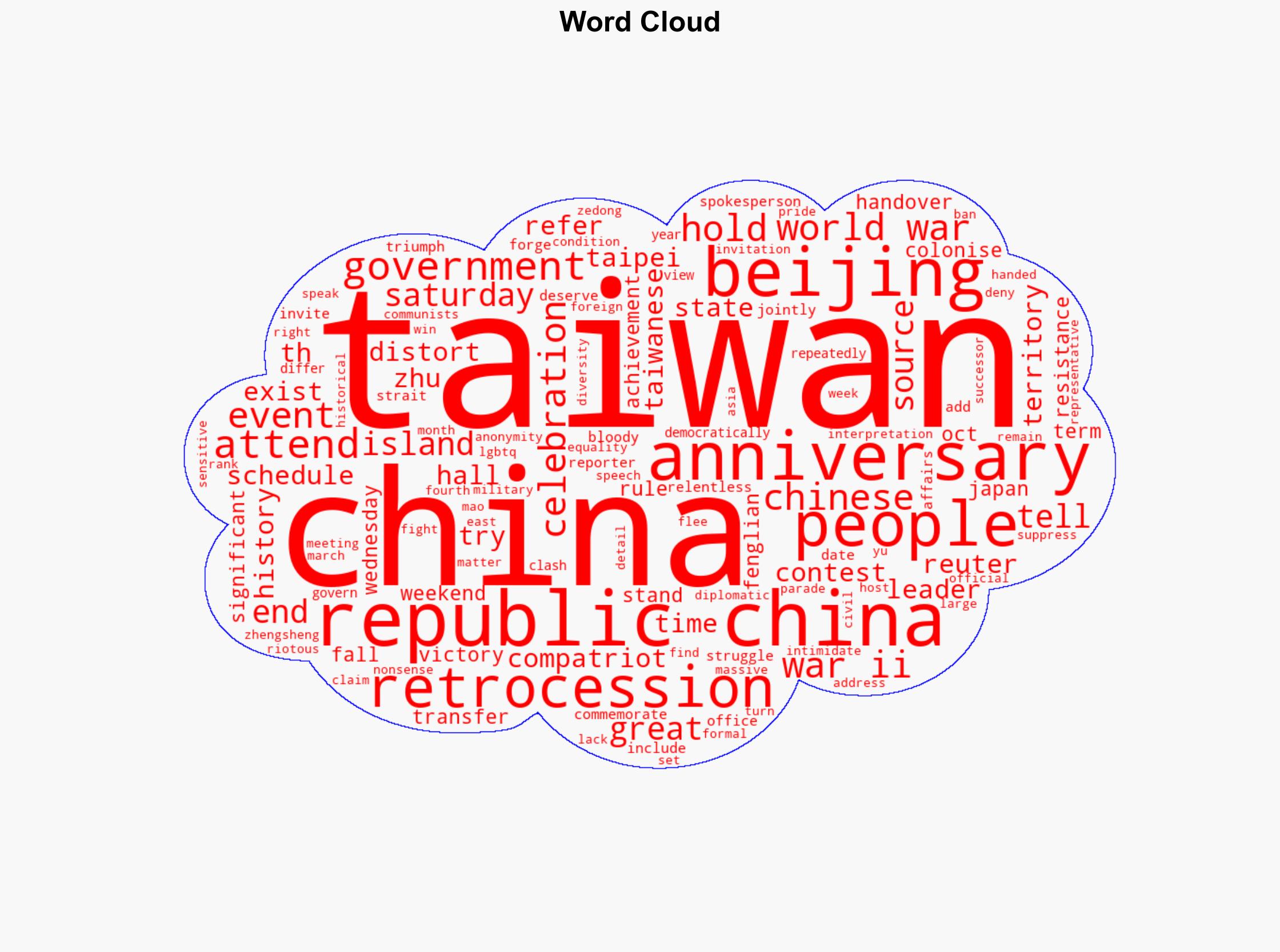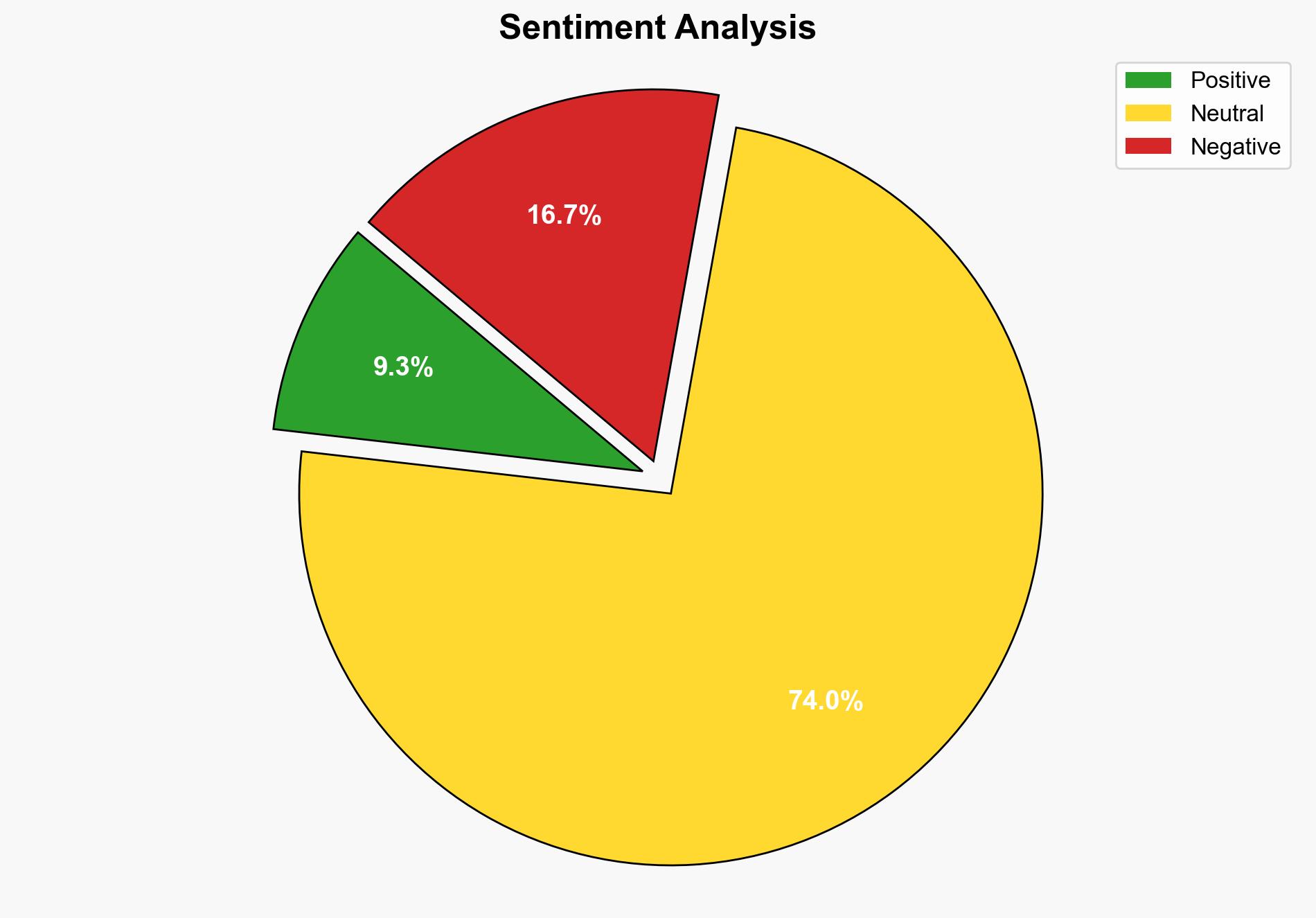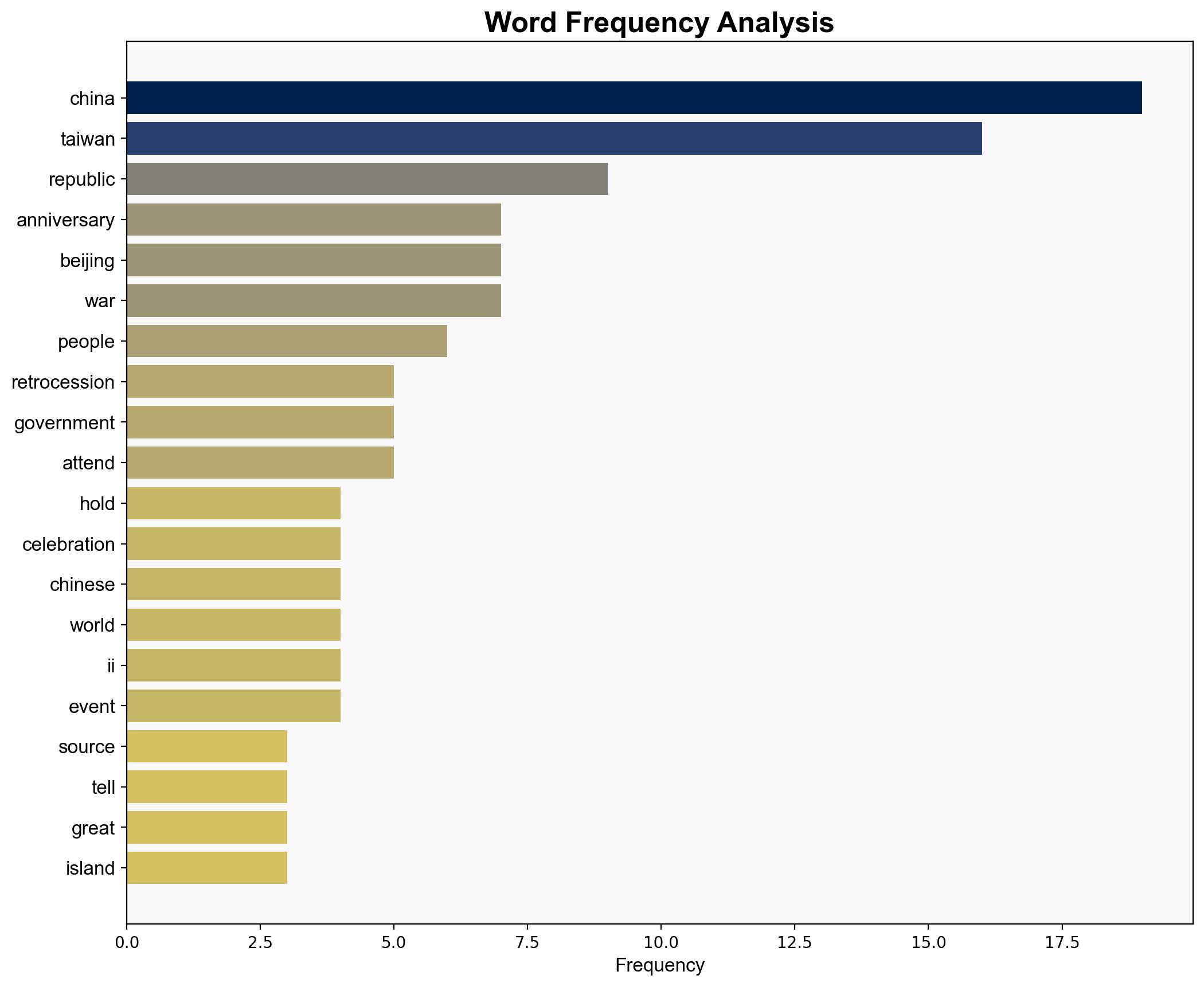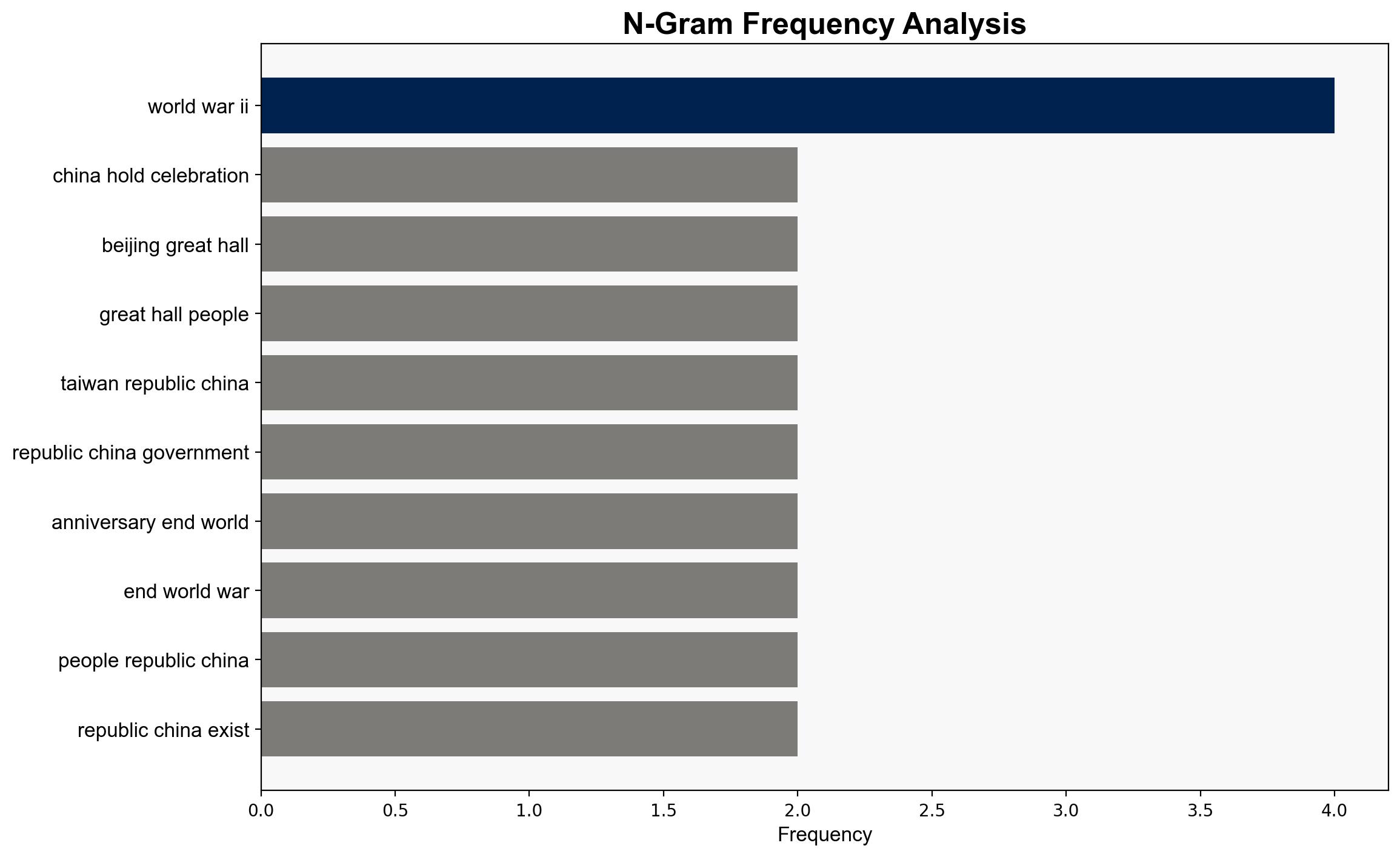China to hold celebration for contested Taiwan ‘retrocession’ anniversary – CNA
Published on: 2025-10-22
Intelligence Report: China to hold celebration for contested Taiwan ‘retrocession’ anniversary – CNA
1. BLUF (Bottom Line Up Front)
The most supported hypothesis is that China’s celebration of the Taiwan ‘retrocession’ anniversary is a strategic move to reinforce its territorial claims over Taiwan and influence international perception. This hypothesis is supported by China’s historical narrative and recent actions. Confidence level: Moderate. Recommended action: Monitor China’s diplomatic and military activities closely, and engage in strategic communications to counter potential misinformation.
2. Competing Hypotheses
1. **Hypothesis 1**: China’s celebration is primarily a domestic political maneuver to consolidate internal support by emphasizing nationalistic themes and historical victories.
2. **Hypothesis 2**: The event is a strategic effort by China to assert its territorial claims over Taiwan on the international stage, potentially influencing global narratives and diplomatic stances.
Using the Analysis of Competing Hypotheses (ACH) 2.0, Hypothesis 2 is better supported due to China’s consistent pattern of using historical events to assert territorial claims and the international focus of the event, including invitations to Taiwanese individuals.
3. Key Assumptions and Red Flags
– **Assumptions**: It is assumed that China’s historical narrative and celebrations are primarily aimed at influencing external perceptions rather than solely domestic audiences.
– **Red Flags**: The lack of detailed information about the event and the anonymous nature of the sources could indicate attempts to control the narrative or conceal strategic intentions.
– **Blind Spots**: Potential underestimation of Taiwan’s domestic response and international support for Taiwan’s position.
4. Implications and Strategic Risks
– **Geopolitical Risks**: Heightened tensions between China and Taiwan could lead to increased military posturing or economic sanctions.
– **Psychological Impact**: The event could influence public opinion in both China and Taiwan, potentially escalating nationalistic sentiments.
– **Cascading Threats**: The celebration could trigger diplomatic conflicts with countries that support Taiwan’s sovereignty, impacting regional stability.
5. Recommendations and Outlook
- Engage in diplomatic dialogues with regional allies to reinforce support for Taiwan’s position.
- Enhance intelligence gathering on China’s military and diplomatic activities around the event.
- Scenario Projections:
- Best Case: The event passes without significant escalation, and diplomatic channels remain open.
- Worst Case: Increased military tensions lead to a regional conflict.
- Most Likely: Continued diplomatic tensions with periodic escalations in rhetoric and military posturing.
6. Key Individuals and Entities
– Zhu Fenglian: Spokesperson for China’s Taiwan Affairs Office.
– Yu Zhengsheng: Former high-ranking Chinese leader, previously involved in similar events.
7. Thematic Tags
national security threats, geopolitical strategy, regional focus, historical narratives




